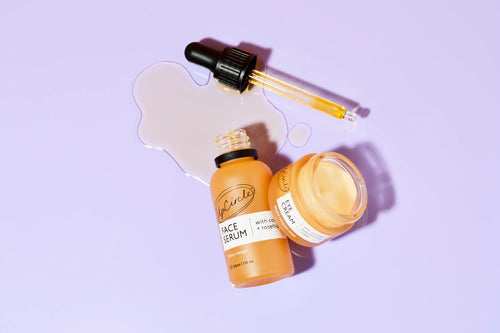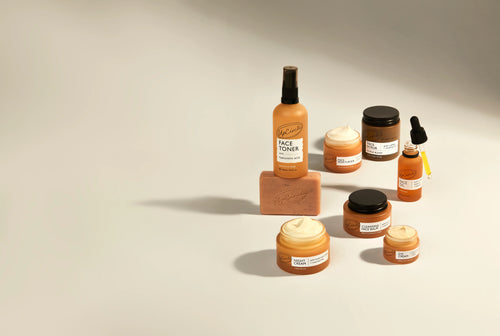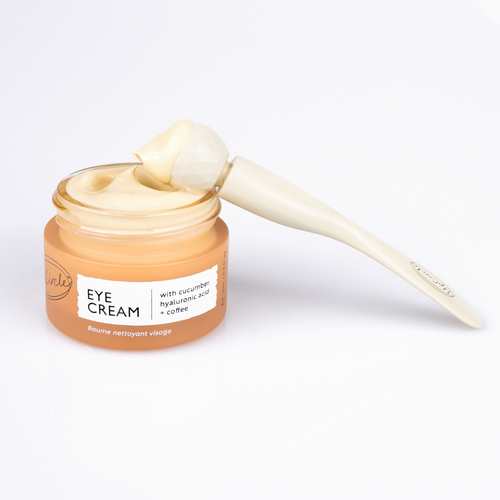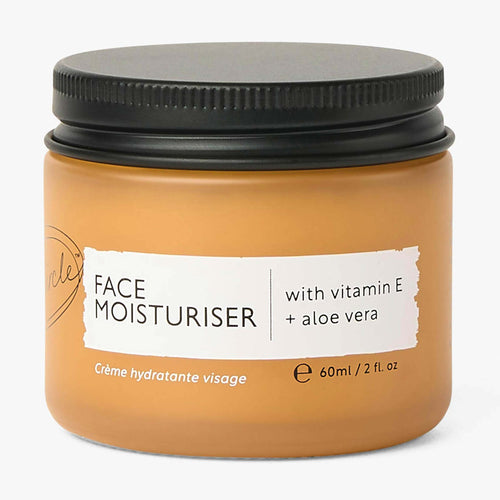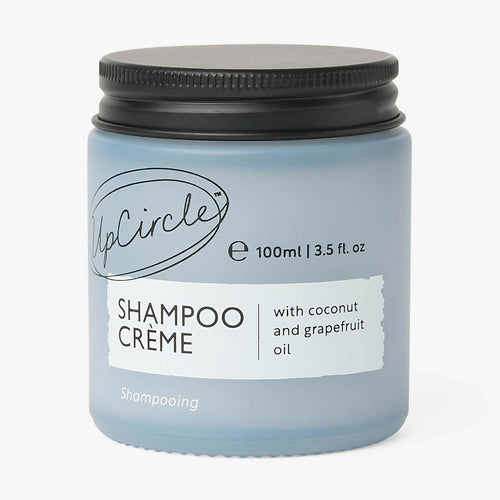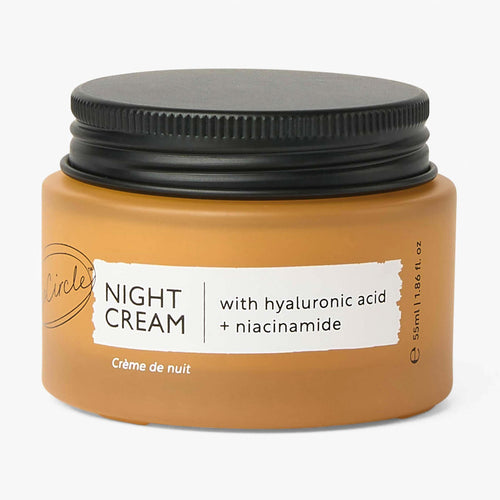If you’re a regular follower of beauty influencers, you may already have heard the term slugging in reference to skincare. If you’ve not yet heard about it, then we’re here to tell you all about it! It’s a beauty hack that has recently taken TikTok by storm – and despite its less than glamorous name, it’s a skincare trend that many of us are considering as part of our skincare routine.
But what is slugging? And how can this popular skincare technique improve your complexion? Is it simply another fad or is it the next best thing that’s here to stay? Read on to discover all you need to know about slugging.
What is slugging?
Let’s start with putting you in the picture. Slugging involves coating your face in a petroleum-based occlusive (usually Vaseline or Aquaphor) to seal in moisture as the final part of your skincare routine at night.
The slugging skincare routine is so-named because after slathering your face in an occlusive, your skin ends up looking slimy and shiny – rather like the trail of a slug or snail! Perhaps not the nicest image and you may be concerned about your bed sheets, so why would you do this?
If you have dry, sensitive skin that is prone to eczema flare-ups, then slugging is a skincare technique that can help to prevent transdermal water loss to maintain moist, dewy skin. It can be transformative if you’ve battled with dry skin and are wondering if anything will ever make a difference.
The slugging skincare routine explained…
Slugging is most effective when performed right before bedtime. This is because overnight your skin is hard at work repairing itself while you sleep. Yes, it’s called beauty sleep for good reason!
Here’s how to master your slugging skincare technique:
- Carry out your usual night-time skincare routine of cleanser, toner, and moisturiser. Not sure of your routine? Follow our simple morning and night time routines. Our much-loved Night Cream will do the trick.
- Apply a layer of a hydrating product that includes glycerin or hyaluronic acid.
- Take a small amount of Vaseline or other occlusive cream – roughly the size of a penny – and spread it thinly all over your skin using your fingertips.
- Enjoy a good night’s sleep!
- In the morning, use a gentle cleanser to remove any traces of petroleum jelly to reveal glowing, hydrated skin.
Top tip: Cover your pillow with an old (but clean!) towel to prevent grease from transferring to your bed linen. Another trick, if you don’t like the idea of sleeping on a towel (especially if you have frizzy hair!) is to pop an old t-shirt over your pillow.
If you’d rather not sleep with a layer of Vaseline on your skin, there is another slugging option you can adopt. It’s not as effective as the overnight method, but it will still go a long way to hydrating dry skin. Here’s what to do:
- Two hours before you go to bed, cleanse, tone and moisturise your skin as normal.
- While your skin is still damp, apply a thin layer of petroleum jelly in the way we explain in step 3 above.
- Watch Netflix, chill on the sofa and relax! Ignore any sarcastic comments from anyone you share a home with!
- Wash off the Vaseline before you go to bed for soft, supple skin.
The benefits of slugging
Occlusives have many benefits for the skin, including locking in moisture and increasing the effectiveness of any products applied underneath. Here are the benefits you can expect from slugging your skin:
- Glowing and hydrated skin
- A healthier and rejuvenated skin barrier
- Lessens appearance of lines and wrinkles
As with all TikTok and social media trends, they don’t usually gain traction if they don’t bring about quick results. You should notice and feel your skin looking and feeling better even after just one night.
Which products are best for slugging?
Traditionally, Vaseline or Aquaphor are used for slugging, but any moisturising creams that contain jojoba oil, aloe vera or shea butter will work wonders on dry skin.
Try slugging with our award-winning Vitamin E-rich face moisturiser for a deeply hydrating and nourishing slugging experience. Just apply it more thickly than you would normally and don’t worry about fully rubbing it in.
How often should slugging be done?
Slugging frequency varies depending on your skin type. If you have very dry skin, slugging two or three times a week will give you a big hydration boost.
However, if you have oily skin, you may only need to slug every fortnight – or just in the winter months when harsh winds and central heating dry out even the oiliest of complexions.
There are no hard and fast rules when it comes to slugging – we’d recommend trying it weekly to begin with and then adapting the routine to suit your unique skin profile.
Is slugging for all skin types?
For those with very oily or acne-prone skin, slugging might not be for you. Coating your face with heavy petroleum-based occlusives could trap impurities in the skin and cause irritation and breakouts.
Instead of Vaseline, apply a gentle overnight moisturising cream with hyaluronic acid that will nourish and hydrate your skin while you sleep – without the risk of a breakout.
Is slugging just for the face?
No – the great thing about slugging is that it can be used on other dry or problematic areas of the body.
Dry knees? Try slugging them! Rough or calloused feet? Coat them in a layer of petroleum jelly before bedtime, pop on a pair of cotton socks and wake up in the morning to soft, summer-ready feet.
Ready to try slugging?
At UpCircle, we are big advocates of any beauty regime that supports your moisture barrier and hydrates your skin. If your end goal is glowing skin then we’d recommend incorporating slugging into your skincare routine.
For optimum hydration when slugging your skin, choose a moisturiser from our range of vegan and cruelty-free formulas that deliver ultimate hydration without compromising your environmental and ethical values.

